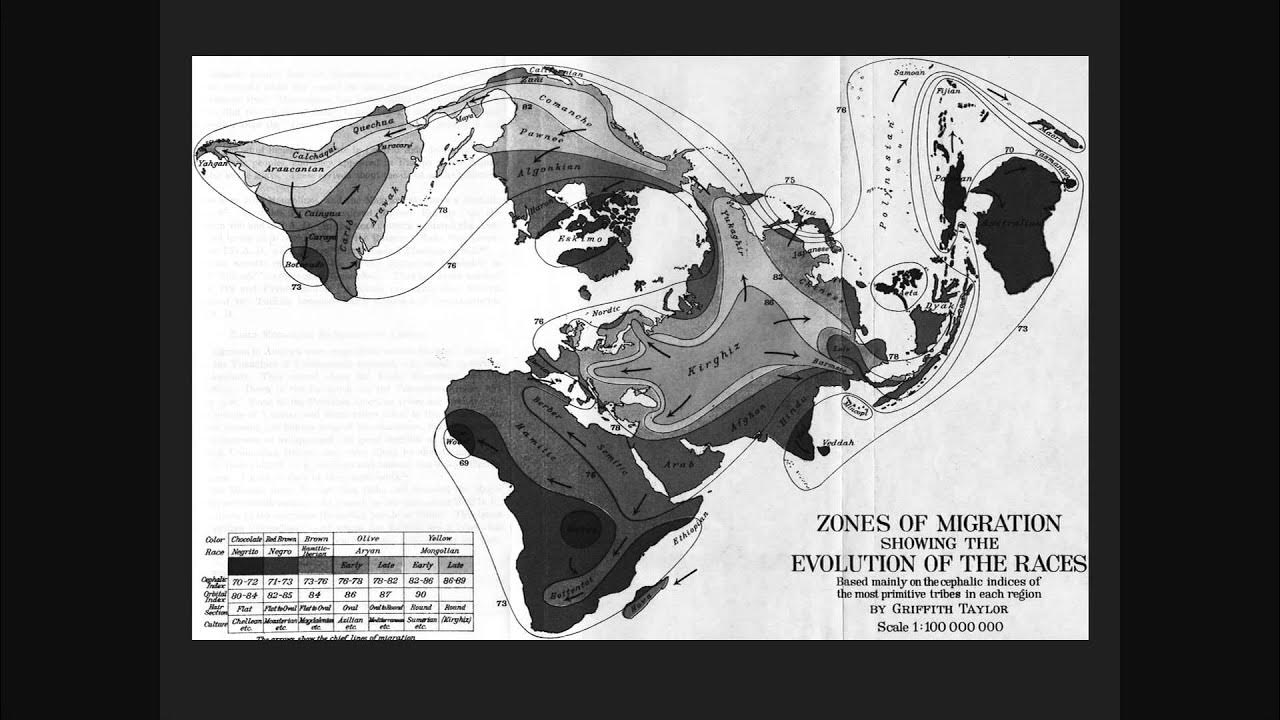The Impact of Colonialism in Africa
Summary
TLDRThis video explores the profound impact of colonialism on Africa, detailing its historical context, key events, and ongoing consequences. Beginning in the late 19th century, European powers carved up the continent, disrupting traditional governance and exploiting natural resources. Independence movements emerged throughout the 20th century, leading to the eventual liberation of many nations, though often accompanied by conflict. Despite recent progress in economic growth and improvements in education and healthcare, Africa continues to face significant challenges, including poverty and inequality. The video emphasizes the importance of addressing these issues to foster sustainable development for a brighter future.
Takeaways
- 🌍 Colonialism in Africa began in the late 19th century, involving European powers carving up the continent and claiming territories.
- ⚔️ The Scramble for Africa disrupted traditional governance and social systems, leading to the exploitation of natural resources and labor.
- 📉 Many Africans were forced to work in plantations and mines, resulting in economic dependence on raw material exports to colonial powers.
- ✊ Various independence movements emerged throughout the 20th century, as African nations fought for self-determination against colonial rule.
- 🇬🇭 Ghana became the first African nation to gain independence in 1957, led by Kwame Nkrumah through civil disobedience and strikes.
- 🇩🇿 The Algerian War of Independence (1954-1962) involved violent conflict against French colonial rule, driven by the National Liberation Front (FLN).
- 🇰🇪 Kenya's Mau Mau Uprising in the 1950s was a rebellion against British rule that ultimately led to independence in 1963.
- 📈 In recent decades, many African countries have experienced significant economic growth, particularly in sectors like agriculture, manufacturing, and services.
- 📚 Education in Africa has improved, with initiatives to increase school enrollment and literacy rates, particularly for disadvantaged groups.
- 💉 Ongoing health challenges in Africa, such as HIV/AIDS and malaria, have prompted efforts to improve access to healthcare services and treatment.
Q & A
What was the primary motivation for European powers to colonize Africa in the late 19th century?
-The primary motivations included competition among European powers and the desire to exploit Africa's natural resources and labor.
How did colonialism disrupt traditional African societies?
-Colonialism dismantled or co-opted traditional systems of governance and social organization, leading to the weakening of many African societies.
What significant movements for independence occurred in mid-20th century Africa?
-Key independence movements included Ghana's independence in 1957, the Algerian War of Independence from 1954 to 1962, and the Mau Mau Uprising in Kenya during the 1950s.
What were some of the tactics used by African leaders to achieve independence from colonial rule?
-African leaders employed various tactics such as strikes, boycotts, civil disobedience, and in some cases, armed resistance.
What were some of the enduring impacts of colonialism on African economies?
-Colonialism led to economic dependency on raw material exports, the exploitation of labor, and a focus on agriculture and mining at the expense of diverse economic development.
In what ways has Africa made progress since gaining independence?
-Since gaining independence, many African countries have experienced economic growth, improvements in education, and advancements in healthcare.
What challenges does Africa still face in terms of development?
-Africa continues to face challenges such as high levels of poverty, inequality, conflict, and environmental issues.
Can you provide examples of countries that have shown significant economic growth recently?
-Countries like Ethiopia, Rwanda, and Senegal have experienced substantial economic growth in recent years, with average annual growth rates around 6-8%.
What initiatives have been implemented to improve access to education in Africa?
-Initiatives include eliminating school fees in Malawi, providing scholarships in South Africa, and creating programs to support disadvantaged groups in Ethiopia.
How have healthcare challenges, such as HIV/AIDS and malaria, been addressed in Africa?
-Efforts include expanding access to treatment, increasing public education about prevention, distributing mosquito nets, and improving healthcare access in underserved areas.
Outlines

هذا القسم متوفر فقط للمشتركين. يرجى الترقية للوصول إلى هذه الميزة.
قم بالترقية الآنMindmap

هذا القسم متوفر فقط للمشتركين. يرجى الترقية للوصول إلى هذه الميزة.
قم بالترقية الآنKeywords

هذا القسم متوفر فقط للمشتركين. يرجى الترقية للوصول إلى هذه الميزة.
قم بالترقية الآنHighlights

هذا القسم متوفر فقط للمشتركين. يرجى الترقية للوصول إلى هذه الميزة.
قم بالترقية الآنTranscripts

هذا القسم متوفر فقط للمشتركين. يرجى الترقية للوصول إلى هذه الميزة.
قم بالترقية الآنتصفح المزيد من مقاطع الفيديو ذات الصلة

【健康】不吃藥.不打胰島素就能降血糖?名醫教你一招逆轉糖尿病!ft.宋晏仁醫師|下班經濟學413

How Palestinians were expelled from their homes

A Theory You've Never Heard Of | Michael Robinson | TEDxUniversityofHartford

Ssuuna Golooba-Mutebi - Britain Does Owe Reparations

La questione israelo palestinese spiegata “semplicemente”

What is Imperialism?
5.0 / 5 (0 votes)
